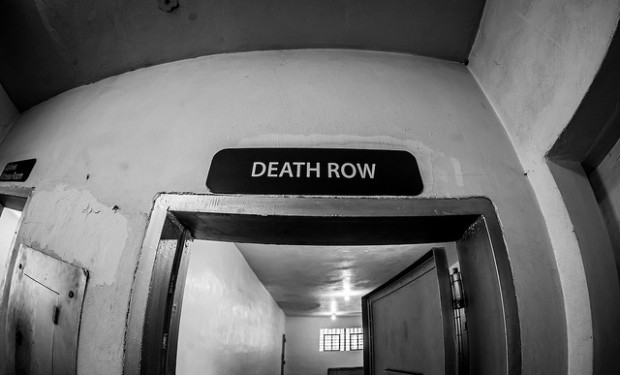Despite controversy over lethal injections, some states refuse to halt executions
Even in the face of the botched execution of Clayton Lockett and Attorney General Holder’s support of a moratorium on the death penalty, some states continue setting execution dates.
This article is the second in a three-part series on issues surrounding the death penalty. You can read Part One here.
The U.S. Supreme Court stayed the executions of three Oklahoma death row inmates in January 2015, all of whom currently have a case pending before the Court challenging the constitutionality of Oklahoma’s lethal injection process. The inmates’ case, titled Glossip v. Gross, rises out of the botched execution of Clayton Lockett in April 2014.
Despite the controversy surrounding the three-drug cocktail involved in lethal injections since Lockett’s botched execution, several states have continued carrying out executions. Just this year, several states, including Georgia, Oklahoma, and Texas, have executed inmates.
On January 13, sixty-six-year-old Andrew Brannan became the first man executed in 2015. After spending fourteen years on death row in Georgia, the former Vietnam combat veteran was executed by lethal injection. The Supreme Court declined to stay his execution, despite claims that he had been deemed “100% disabled” by the Department of Veterans Affairs due to his suffering from Post Traumatic Stress Disorder. Brennan was sentenced to death for the 1998 shooting and killing of Kyle Dinkheller, a twenty-two-year-old Deputy Sherriff.
On January 15, Oklahoma executed Charles Warner, who was previously a plaintiff in Glossip v. Gross. Warner, who had originally been scheduled to be executed just hours after Lockett in April 2014, was executed less than two weeks before the Supreme Court stayed the executions of the three remaining Oklahoma plaintiffs. Warner was on death row for the 1997 rape and murder of an eleven-month-old girl.
On January 29, fifty-seven-year-old Robert Ladd was executed by lethal injection in Texas, after the Supreme Court declined staying his execution, despite his lawyer’s claims that Ladd had an IQ of sixty-seven, and should therefore not be put to death. Ladd had been on death row for the 1996 murder of a thirty-eight-year-old woman that he committed while on parole for the 1980 killing of a woman and her two children.
On February 18, United States Attorney General Eric Holder recommended that all states halt any pending executions until the Supreme Court makes a decision in Glossip v. Gross. The Court plans to hear arguments for the case in late April. Holder said that the potential for wrongful convictions and botched executions led him to make this recommendation.
While it appears that Oklahoma has halted further executions pending the Supreme Court’s decision in Glossip v. Gross, Georgia has made it clear that it intends to continue executions, despite Holder’s recommendations.
Forty-seven-year-old Kelly Gissendaner was scheduled to be executed in Georgia on February 25, but her execution has also been postponed. Unlike Warner’s execution, Gissendaner’s execution was not postponed due to concerns about the administration of the lethal injection. Rather, the Georgia Department of Corrections decided to postpone Gissendaner’s execution once due to inclimate weather and a second time because of problems with the drug that was to be used in the execution. Gissendaner was convicted of hiring Gregory Owen, with whom she was romantically involved, to kill her husband Douglas Gissendaner in 1997. Gissendaner is currently the only woman on death row in Georgia, and will become the second woman executed in the state.
While some states are apparently set on continuing executions despite obvious problems in the administration of lethal injections and Holder’s support of a moratorium on the death penalty, some states have followed in Oklahoma’s footsteps and have elected to temporarily halt executions.





